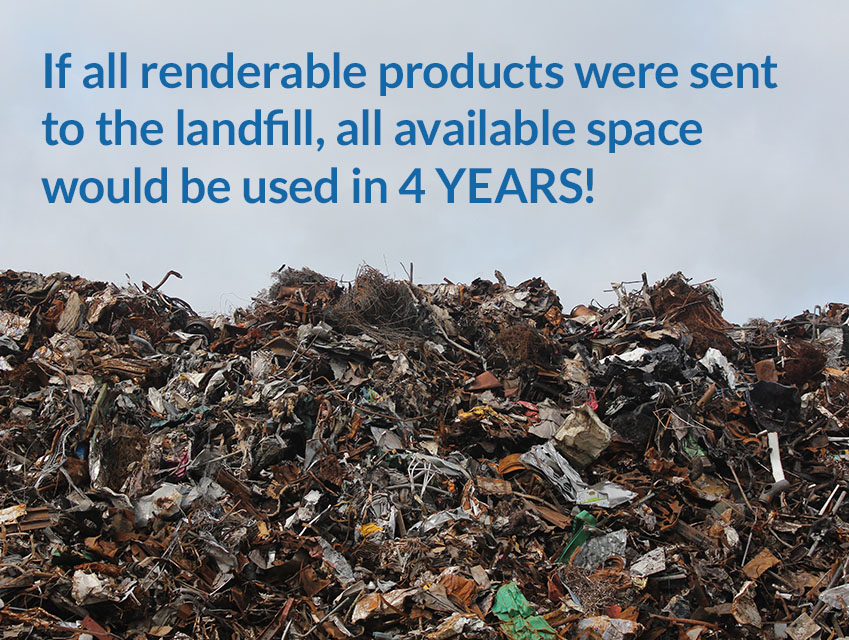Reduced Landfill Waste
By rendering the leftover material from the food we eat, like meat and bone scraps, we stop it from going to the landfill, which saves huge volumes of landfill space. According to the Environmental Protection Agency, food waste takes up more space in landfills than any other material. Finding ways to reuse leftover meat materials offers a powerful solution for sustainable waste management. Renderers provide a critical solution to save landfill space and help protect the environment as a whole.
Rendering also stops greenhouse gasses from being released into the environment, which they would should that meat material be allowed to decompose in a landfill. By diverting this material from landfills, we are upcycling it into new products like nutritious pet food, and biodiesel, and sustainably reducing food waste.
Why Sustainable Waste Management Matters
Sustainable waste management practices involve collecting, transporting, and repurposing waste materials to help reduce landfill waste. Handling commercial, household, and industrial waste processing is also an essential aspect. By reducing the number of natural resources consumed, waste management can help protect the environment and make the world safer for generations to come.
Critical benefits of sustainable waste management practices include:
- Protecting the environment: As a key element of a circular economy, sustainable waste management employs various methods to reduce humanity’s environmental impact and conserve resources for future use. Reducing landfill waste use improves overall living conditions for animals, plants, and people alike by reducing the release of greenhouse gases as discarded meats decompose.
- Saving landfill space: With sustainable waste management practices, communities can free up more land for other eco-friendly uses. Smaller landfills encourage increased conservation efforts and better environmental conditions across communities.
- Decreasing operating costs: Reducing landfill waste can decrease operational expenses for landfill management and waste transportation. At the same time, it also saves money by reusing resources.

How to Reduce Waste in Landfills
Renderers and other processors are a critical part of supporting a circular economy that reuses waste products and helps conserve resources. Communities have a critical role in collaborating with key service providers like renderers to help with this goal to save landfill space.
Three ways to reduce landfill waste include:
1. Strategic Planning
Waste management requires a strong strategy to handle waste, identify reusable materials to process, and decrease the amount of discarded resources going into landfills. Having an approach that proactively addresses conservation needs and plans for reusing materials will help communities reduce landfill waste and move toward a more sustainable future.
2. Collaboration Across Industries
It’s critical that various industries collaborate to develop more streamlined and efficient ways of addressing waste management requirements. Renderers, municipalities, landfill operators, and consumers can all work together to handle waste output and repurpose materials as much as possible.
3. Material Recycling
Rendering is a vital industry that can help save space in landfills and promote increased sustainability. By reusing discarded meat products, animal fats, cooking oils, and other materials, renderers can collaborate with meat processors to decrease waste volumes. Raw proteins, bones, fat, and other materials can go toward vital applications such as pet food, biodiesel fuel, agriculture, and other needs.
How NARA Supports Solutions to Landfill Waste Disposal
The North American Renderers’ Association (NARA) is dedicated to helping reduce overall waste across communities and create more sustainable solutions. NARA recognizes the vital role of rendering in this effort and provides critical resources, an industry magazine, educational materials, and policy advocacy to increase awareness and support sustainable rendering.
If you’d like more information on the services and resources NARA offers for the rendering industry and environmental sustainability, contact us today about membership opportunities.

